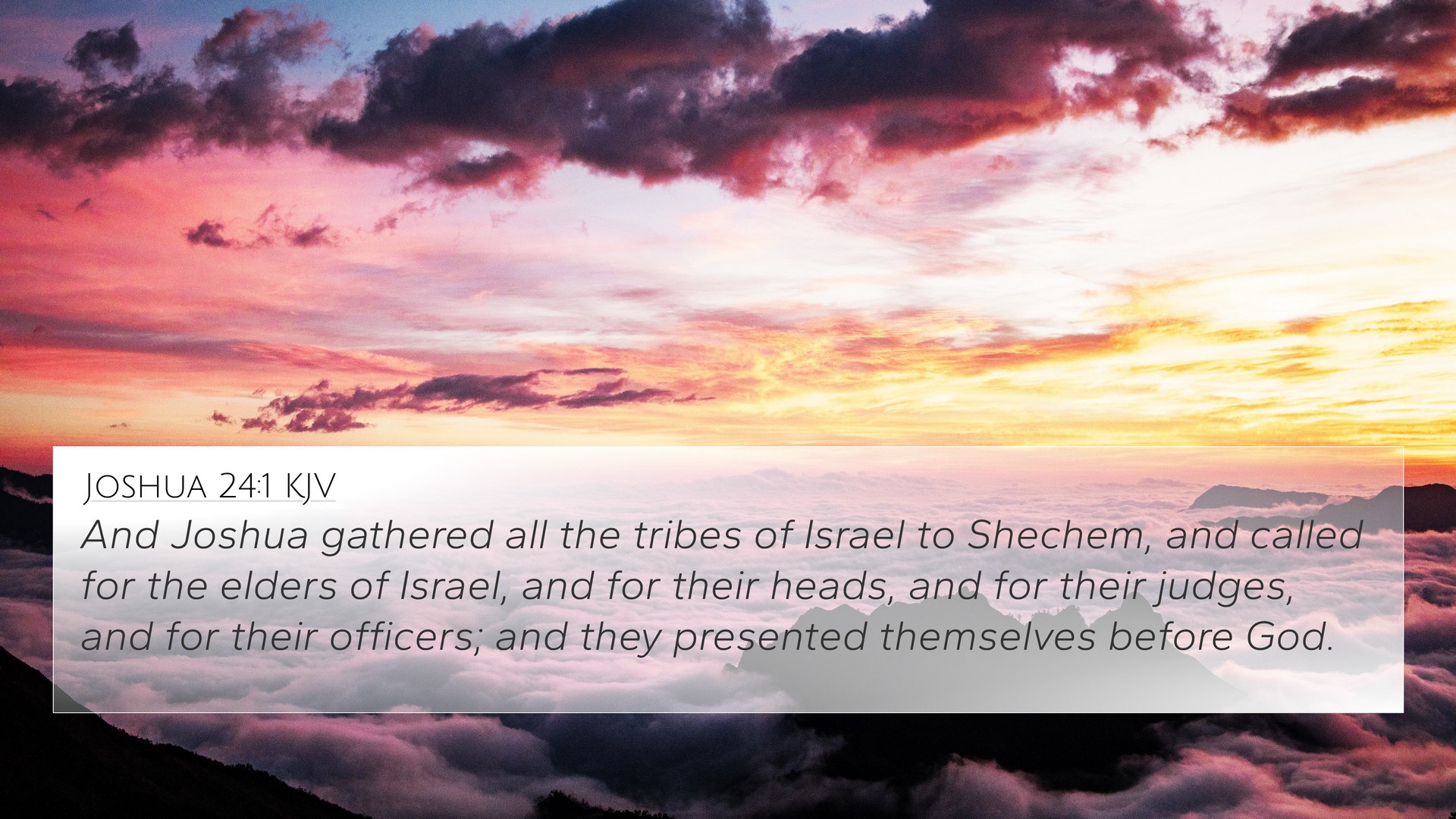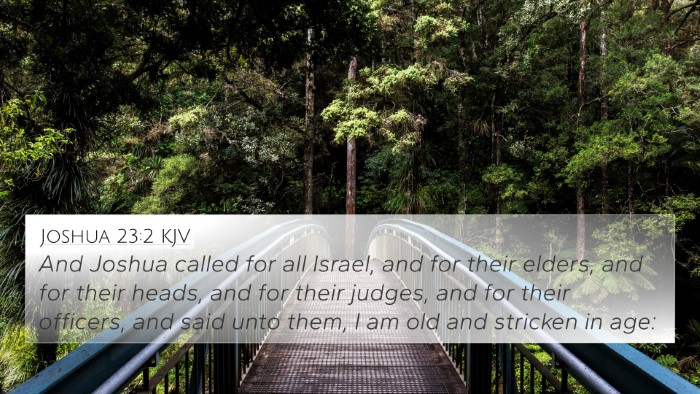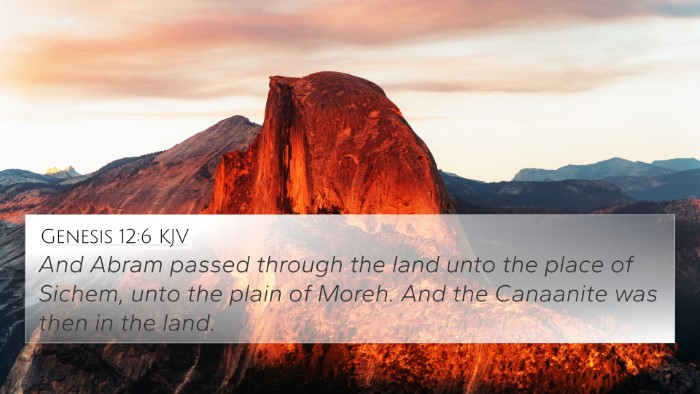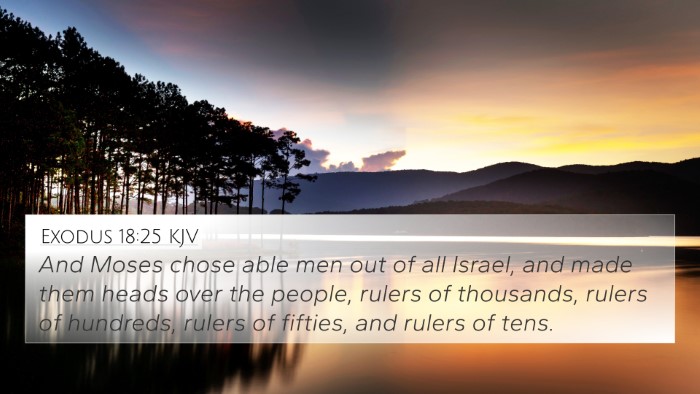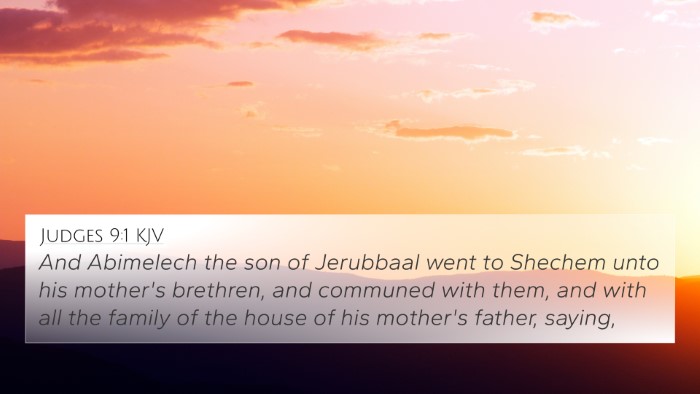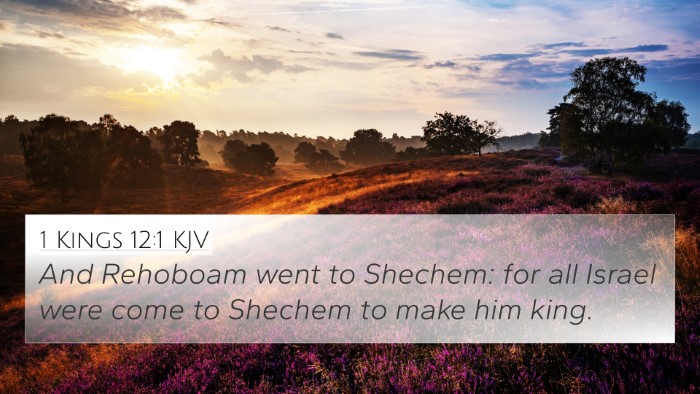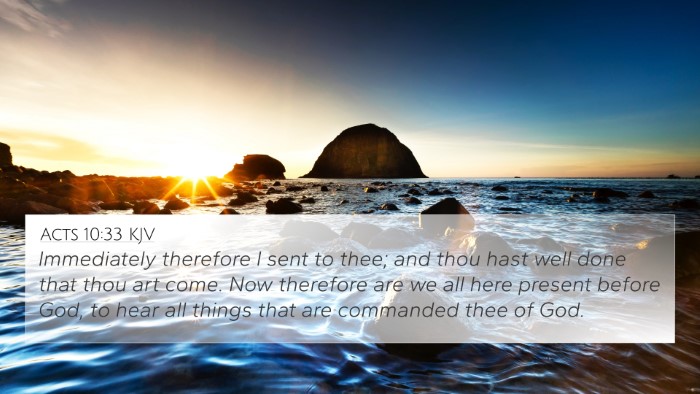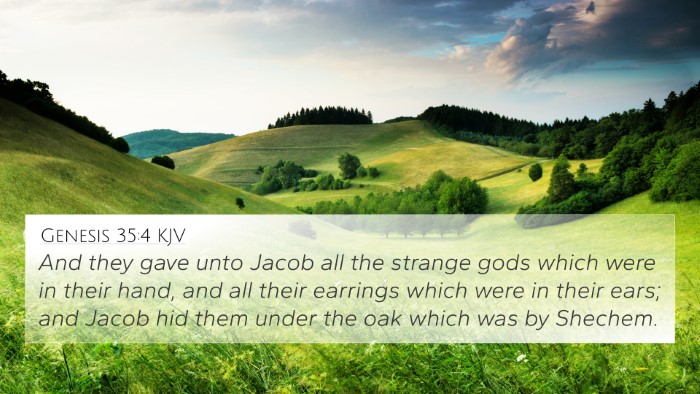Understanding Joshua 24:1
Verse: "And Joshua gathered all the tribes of Israel to Shechem and called for the elders of Israel, for their heads, for their judges, and for their officers; and they presented themselves before God." (Joshua 24:1)
Overview of the Verse
This verse marks a significant gathering organized by Joshua, who had taken leadership after Moses. It reflects a crucial moment for the nation of Israel, where their leaders come together to seek God's guidance and reaffirm their commitment to Him.
Meaning and Interpretation
-
Leadership and Unity: Joshua's calling of the tribes signifies the importance of unity among the Israelites. Each leader of the tribes—elders, judges, and officers—represents the collective responsibility of the nation.
-
The Significance of Shechem: Shechem is chosen as the gathering place, which holds historical and religious significance as a site where God made promises to Abraham (Genesis 12:6-7). This reflects the continuity of God’s covenant with Israel.
-
Approaching God: The act of presenting themselves before God indicates the essence of worship and submission. It is a reminder that the nation's decisions should be guided by divine principles rather than human wisdom.
-
Preparation for Covenant Renewal: Contextually, this gathering leads into Joshua’s famous speech about renewing the covenant with God, emphasizing the need for commitment and faithfulness from the Israelites.
Commentary Insights
-
Matthew Henry: Highlights the importance of corporate leadership and devotion in the life of the community, stressing that they came to seek God’s direction collectively.
-
Albert Barnes: Reminds readers of the historical context and the transition of Israel into a nation under divine governance, focusing on the significance of their gathering.
-
Adam Clarke: Points out the inclusiveness of the gathering and the call for accountability among leaders, suggesting that each tribe's officials should reflect the covenant obligations.
Cross-References Related to Joshua 24:1
- Genesis 12:6-7: Promises made at Shechem
- Exodus 19:6: A kingdom of priests and a holy nation
- Deuteronomy 30:19-20: Choosing life and the blessings of God
- Joshua 1:16-18: The people's commitment to Joshua's leadership
- Hebrews 10:25: The significance of not forsaking the assembly
- 1 Samuel 7:5: Gathering for prayer and acknowledgement of God’s past deliverance
- Acts 2:42: The early church’s commitment to collective prayer and teaching
Thematic Connections
- Faithfulness to God: Themes of loyalty and commitment to God are deeply rooted in this passage, reflecting the Israelite's historical relationship with the covenant.
- Collective Responsibility: The structure of leadership and the responsibility that comes with it are echoed throughout the Bible, reinforcing collective adherence to God's commands.
- Covenant Renewal: The necessity for constant renewal of promises made to God can be seen throughout both the Old and New Testament.
Tools for Deeper Study
There are various tools available for those interested in cross-referencing Bible verses and gaining deeper understanding:
- Bible Concordance: A comprehensive resource for finding specific words and their occurrences across scripture.
- Bible Cross-Reference Guide: Guides that show how different scriptures connect and support one another.
- Cross-Referencing Bible Study: Utilizing references helps understand scriptural context, themes, and deeper meanings.
Conclusion
Joshua 24:1 serves as a pivotal moment in Israel's history where leaders gather to affirm their covenant with God. Understanding this verse through a collective lens helps grasp the significance of unity, accountability, and spiritual commitment in the life of believers. By exploring the cross-references and applying tools for deeper study, one can uncover a rich tapestry of God's word that offers guidance and encouragement for life's journey.
